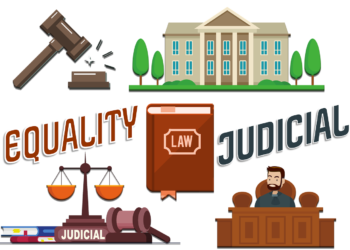In a significant legal development, the Court of Appeal has upheld a decision made by the Home Secretary to revoke an individual’s British citizenship.
This decision was rooted in the individual’s failure to disclose a material fact during the process of obtaining British citizenship. The case in question is Ahmed v Secretary of State for the Home Department [2023] EWCA Civ 1087.
Some Background to the Story
The individual in question arrived in the UK as a student in March 2006. It’s crucial to note that in December 2006, he initiated a relationship with a Polish national, Ms. Lebkowska.
An essential detail is that the individual’s wife, Ms. Sbuhi, signed a divorce deed in Pakistan in October 2008. On May 28, 2009, he applied for a residence card based on his established relationship with Ms. Lebkowska. This application was approved on July 27, 2010.
During a visit to Pakistan in January 2011, the individual was involved in a situation where Ms. Sbuhi became pregnant, eventually giving birth to their fourth child in September 2011.
Notably, on July 21, 2015, he applied for permanent residence, wherein he stated on the application that he had divorced Ms. Sbuhi on October 14, 2008, intentionally omitting any reference to the birth of his fourth child.
Although his EEA application faced initial refusal due to registration issues with Ms. Lebkowska, an appeal to the First-tier Tribunal was allowed.
This was based on the assertion that the individual had already obtained permanent residence before the relationship with Ms. Lebkowska broke down, as she had been a qualified person for over seven years. Consequently, the individual received a permanent residence card on July 12, 2017.
In August 2017, the individual reconciled with his former wife in Pakistan and subsequently returned to the UK. Following this, he applied for British citizenship on July 30, 2018, and was granted citizenship on August 20, 2018.
On December 17, 2018, the individual submitted an entry clearance application for Ms. Sbuhi and their four children to join him in the UK. Surprisingly, this application made no mention of the divorce deed or his prior relationship with Ms. Lebkowska.
The Revocation Decision and What Happened Next
On November 29, 2019, the Home Secretary made a decision to revoke the individual’s British citizenship under section 40(3) of the British Nationality Act 1981.
This section empowers the Home Secretary to revoke citizenship obtained through fraudulent means, false representation, or the non-disclosure of a material fact.
The individual appealed to the First-tier Tribunal, but this appeal was dismissed on March 9, 2020. However, on April 20, 2021, the Upper Tribunal (IAC) set aside the initial decision.
This action was taken due to issues related to the judge’s understanding of the divorce deed and misdirection concerning evidential burdens and the standard of proof.
Subsequently, the Upper Tribunal retained and later dismissed the appeal, concluding that the Home Secretary would have denied the individual’s application for naturalization had she been aware of his non-disclosure of the material fact.
What were the Issues the Court of Appeal Decided on?
The individual’s appeal raised three primary grounds:
- The alleged misapplication of country information by the judge, specifically regarding Ms. Sbuhi’s actions in 2011.
- The judge’s purported error in considering the possibility of a genuine and durable relationship with two individuals simultaneously.
- The judge’s failure to explicitly state that the non-disclosure of a material fact was also dishonest.
In response to the first ground, the Court of Appeal observed that the inconsistencies in witness evidence regarding Ms. Sbuhi’s actions contributed to the judge’s adverse findings.
Even if the judge had made an error regarding the use of country guidance cases, it would not have been a valid basis for overturning the findings of fact.
For the second ground, it was argued that an individual could be in a genuine and durable relationship with two people at the same time.
However, the fact that the divorce deed was submitted as part of the EEA application indicated the need to demonstrate that a previous relationship had permanently broken down. Therefore, this ground was also dismissed.
The third ground appeared to be raised due to the Upper Tribunal judge’s failure to expressly state that the non-disclosure of a material fact was also dishonest.
This argument was rejected, as it was evident from the judge’s findings of fact that the individual had acted dishonestly. This aligns with the objective test outlined in Ivey v Genting.
What about the Issue of Begum?
A separate point was raised in the Respondent’s Notice, where the Home Secretary contended that the appeal should be dismissed.
The Home Secretary argued that the Upper Tribunal’s approach should have considered the principles outlined in R (Begum).
The Upper Tribunal, however, followed a pre-Begum approach, focusing solely on the nature of the individual’s relationship with his wife, Ms. Sbuhi.
In Conclusion
This case underscores the significant consequences of dishonesty during the citizenship application process.
With revocation decisions becoming increasingly common, individuals seeking to navigate the rules should be aware of the potential outcomes, as demonstrated in this case.
While the implications of the Begum decision are still under consideration, maintaining transparency during the citizenship application process remains of paramount importance.
For any enquiries please, email our editorial team at [email protected]. If you liked this story, kindly sign up for Clariform Newsletter, a handpicked selection of stories that helps you clarify things that matter and gives you clear signals about your world, delivered directly to your inbox.
Please subscribe to our YouTube channel, and join thousands of Clariform on Facebook, Twitter and Instagram.












